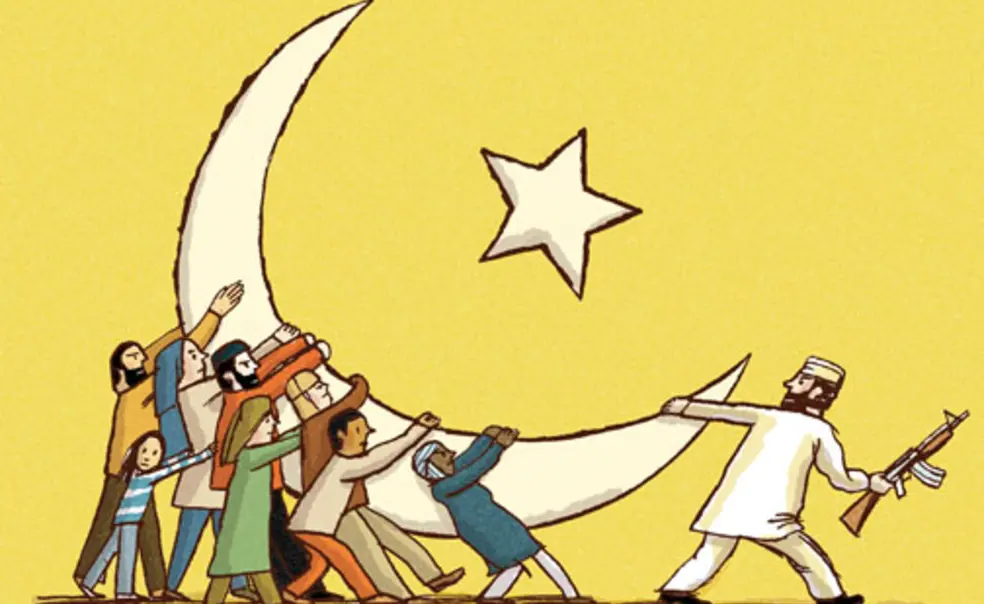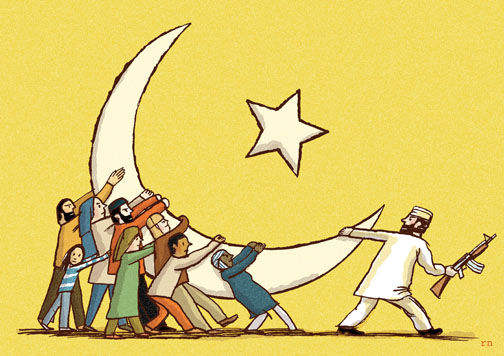A world of Islams
I remember waking up in my dorm room on the morning of Sept. 11, 2001, to the shouts of my hall-mate and friend beckoning me to come next door. It was the beginning of our sophomore year, and I was a leader of the Muslim Students Association (MSA) at Princeton. Watching television in 1937 Hall, we were gripped and confounded by the horrific scenes that unfolded in the ensuing hours, which are forever etched in my memory — as I am sure they are for countless others.
It was the start of what has been termed the post-9/11 decade, during which much of the world’s narrative was shaped by an “us versus them” mentality. Especially in the first few years, Muslims in the West endured an uncomfortable feeling that the surrounding society considered them suspect.
I fielded calls shortly after the Sept. 11 attacks from local newspapers, the reporters asking if things were OK for Muslims on campus. Though there were incidents, the general situation at Princeton was safe. I sometimes received hate mail. One group of students was assaulted one weekend in Boston and returned with the bruises to show for it. And, I, like so many others, was given the so-called special treatment and faced lengthy interrogations at JFK or Newark whenever flying to and from school.
I came to Princeton as a student like everyone else, but at some point I had to transform into an ambassador of understanding. The funny thing is, at the same time I was explaining Islam to promote understanding, I was questioning the state of Islam in the world around me. It is a duality that has stayed with me in the years since.
This year, on the anniversary of the attacks, a deadly assault on the U.S. consulate in Benghazi, Libya, shocked the world once again. It also shocked the residents of Benghazi. This past January, I spent time with youth activists and entrepreneurs in that city. What I witnessed was a courageous and driven group of young Libyans determined to forge a better future. Alongside tens of thousands of their compatriots, many of these youth marched in mid-September to the central al-Kish Square in memory of the slain U.S. ambassador, Chris Stevens, calling as well on militias to disarm.
Their march was emblematic of the duality I experience. No doubt, there is still a need to combat what is more a “clash of ignorances” (not a clash of civilizations) across the divide between the Muslim world and the West. This was the impetus that drove two colleagues and me to found the nonprofit initiative Project Encounter, which promotes engagement and dialogue. We bring groups of young people from North America and Europe to the Middle East, to allow them to form their own narrative about the region. I feel that only through improved understanding and greater familiarity can we find constructive ways forward.
Nevertheless, through my work and travels in countries from Afghanistan to Syria, Palestine to Pakistan, and places in between, I find there is a need for just as much soul-searching within Muslim communities themselves.
When a cheaply made YouTube film can lead to violent demonstrations in more than a dozen countries, you cannot help but ask questions. When a young Christian girl can be jailed swiftly on the demands of an unhinged cleric alleging “blasphemy” in Pakistan, you cannot help but raise an objection. When a college is raided and 25 students are killed in Nigeria by a group whose name (Boko Haram) means “Western education is sinful,” you cannot help but be dismayed.
For many countries in the Muslim world, the next few years will not be easy. The political and economic challenges facing them are immense — and that’s an understatement. A few are in active states of internal conflict, if not internecine warfare. Others are under the grip of debilitating authoritarian regimes. So many are still afflicted by economic deprivation.
There are, of course, counterexamples. In places like Malaysia and Dubai, there are new economic models of development. The Arab uprisings have started to push back against political authoritarianism. Yet the forces of religious orthodoxy seem to be not only constant, but growing. Popular clerics who appear on Pakistani television are busy calling minority groups, such as Ahmadis, non-Muslims — with deadly consequences. I remember seeing the bloodstains in an Ahmadi mosque in Lahore in 2010, shortly after an attack by religious militants. More than 90 people had died in attacks at two mosques. Within a year, the governor of the Punjab province, of which Lahore is the capital, had been assassinated for opposing draconian blasphemy laws, as was the federal minister of religious minorities. What was the basis or justification for those attacks?
Sooner or later, everybody comes into the sights of the bully pulpit: marginalized groups such as Ahmadis, other religious groups and Muslim minorities, and then so-called “moderates.” Sufi shrines that existed for centuries have been attacked and destroyed by extremist groups in recent months in Libya and Mali. When I was working for an NGO in the Gujarat province in India, many of my meetings were held in Hindu temples, sometimes during religious ceremonies. What would the view of the hardline Muslim orthodoxy be of me?
Traveling through the wider region, you quickly realize that while the bullies are strong and loud, they are surrounded by people who would like to see a pluralistic and prosperous society. These are people like the young activists I met in Libya. They are the Saudi Arabian entrepreneurs who have formed an organization dedicated to the empowerment of women in the workforce (Glowork). They include my Syrian friends who are helping to ensure that those fleeing conflict have a place of refuge, no matter their sect or creed. They are like my former colleagues, who have spent their entire careers in Pakistani villages working on local development.
I’m hopeful that these progressive forces within many Muslim communities and Muslim-majority countries can coalesce to form a stronger and wider constituency for change. Such a movement would be the most effective bridge between the Muslim world and the West, as well.
Taufiq Rahim ’04 is the director of Globesight, an advisory firm for strategy in emerging markets. He blogs regularly on TheGeopolitico.com.














No responses yet